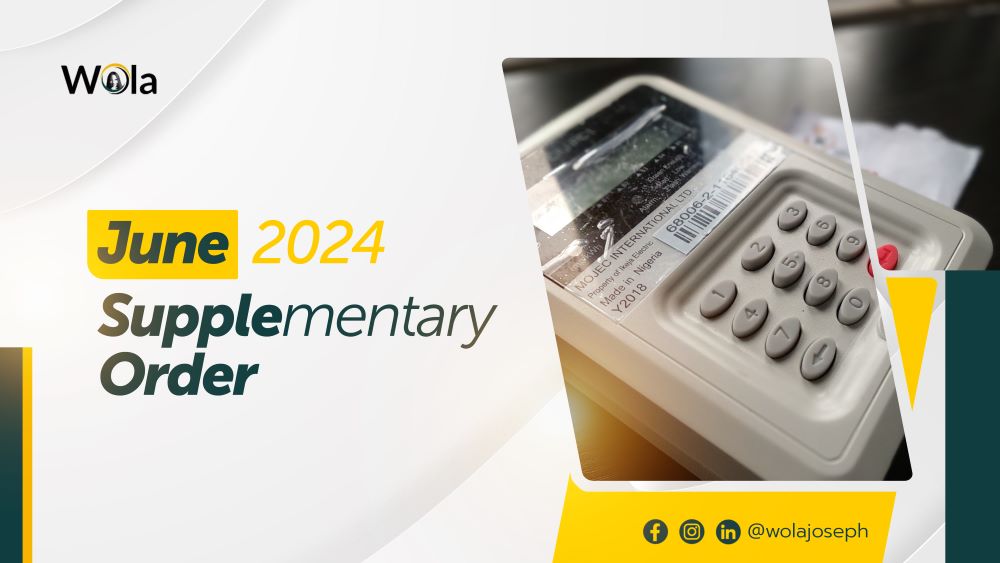This is the question I have been receiving since the Nigeria Electricity Regulatory Commission (“the Commission”) released its Supplementary MYTO Orders for June. Under the Orders, the Commission recognized the changes in pass-through indices outside the control of market participants, that had occurred in the preceding month of May. The changes included the rise in Nigeria’s exchange and inflation rates.
Surprisingly, despite the negative changes that had occurred in these pass-through indices, the Commission made no changes to the final Band A tariff. In a bid to understand the reasons for the unchanged tariff, I undertook an analysis of the June Orders for certain Distribution Companies (DisCos) vis-à-vis their previous Orders for April/May, and I came up with a likely reason which is explained in the succeeding paragraphs.
To provide greater insight, I juxtaposed the pass-through indices used in the two previous supplementary MYTO Orders for April and May, with the pass-through indices used in the June Order. These are detailed in the table below:

In the month of May, we saw a reduction in the final Band A tariff from N225kwh to N206.8kwh. As explained in my last article on the subject ‘Decoding The Order’, this reduction was largely due to the strengthening of the Naira against the dollar. A stronger naira meant that our Generation Companies (GenCos) paid less for their required gas feedstock, which is priced in dollars. This resulted in the reduction of average generation cost from N103.9kwh to N87.3kwh, which ripples down the value chain to reduce the final end-user tariff.
However, as you can glean from the table above, the pass-through indices used in June’s Order rose to similar or even higher levels than those under the April Order. The exchange rate increased from N1,227.78/$1 to N1,469.06/$1, which is slightly higher than the rate of N1,463.31/$1 in April. Nigeria’s inflation rate also increased from 33.20% to 33.69%, which is significantly higher than the inflation rate of 31.70% in April. In addition, the cost of generation rose from N87.3kwh to N104.4kwh, which is slightly higher than the generation cost of N103.9kwh in April. Logically, these escalations should have translated into an increase in the final Band A Tariff from N206.8kwh back to N225kwh or higher. However, we see no such increase in Band A tariff.
WHY DID THE BAND A TARIFF NOT INCREASE?
Judging from the public outcry against the increase of tariff to N225kwh in April and the subsequent calm that followed when the tariff was reduced to N206.8kwh in May, I think it is very likely that the Commission refrained from increasing the Band A tariff to avoid stirring another storm.
WHO BEARS THE BURDEN?
While the decision of the Commission is understandable, we must understand that the escalated indices and freezing of tariffs will create a tariff shortfall that must be settled. This raises the question: what happens to that shortfall? or who bears the burden?
To answer this question, I had to keenly observe the change in another metric that initially went unnoticed. If you look closely at item 8 in the table above, you will observe a significant jump in the monthly subsidy payable by the FGN. Ordinarily, since the indices in June’s Order are similar or slightly higher than April’s, one would have expected the monthly subsidy payment to rise from N9.36bn back to N13.76bn or slightly higher. However, what we see is a significant jump in the monthly subsidy payment beyond N13.74bn to N16.36bn (over 19% higher).
This led me to the conclusion that, since the tariff of Band A customers was not increased despite the escalation in the pass-through indices, the FGN would be bearing the burden of the shortfall by making a higher monthly subsidy payment.
CONCLUSION:
While I do not wish to delve into the efficacy of the decision to increase the subsidy payments by the government, I hope this aptly explains the reason for the unchanged tariff for Band A customers in the month of June. I am, however, happy to hear opinions from my colleagues in the industry.

